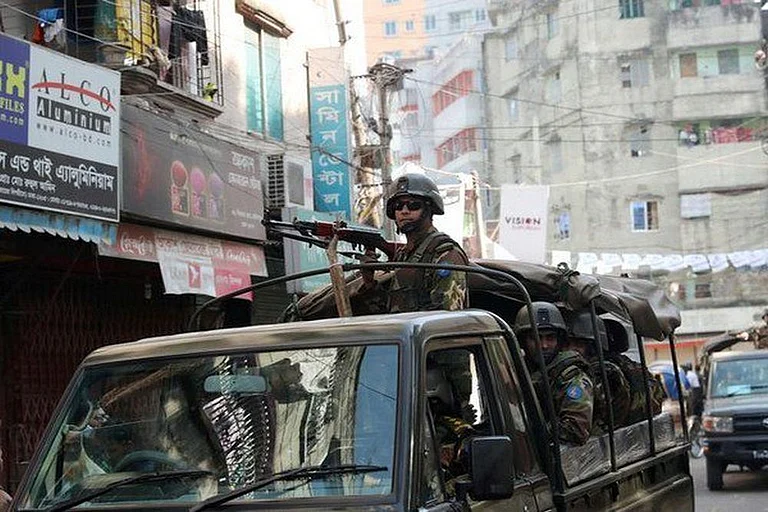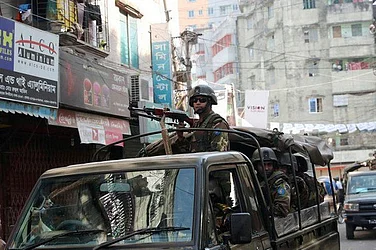The organisers of anti-government protests in Sri Lanka on Saturday said they would intensify their movement against President Gotabaya Rajapaksa with marches with wider participation.
The protests at the office of Gotabaya entered its 50th day on Saturday where protesters have occupied the entrance to the office demanding his resignation.
Sri Lanka is currently facing its worst financial crisis as it faces an acute shortage of foreign exchange, leading to acute shortages of essentials like vehicular fuel, cooking gas, fuel for thermal power production, essential foodstuff, and medicines, leading to great hardships for people, and driving the country to near bankruptcy.
The financial crisis has led to a political crisis as well that has already led to the resignation of Prime Minister Mahinda Rajapaksa, the elder brother of the president. Despite this, calls for Gotabaya's resignation has continued. Saturday marks the 50th day of the “Go Rajapaksa” protest which has also seen the death of a parliamentarian.
The protests have also turned violent at times, causing multiple deaths in clashes with police as well as pro-government activists.
"The continuous protest demanding the resignation of President Gotabaya Rajapaksa has reached its 50th day today. The day is to be marked with protest marches with wider participation," said the organisers.
The action started on April 9 when protesters walked into the Galle Face promenade central Colombo and camped there blocking the entry gate to Rajapaksa’s presidential office.
They expanded activities at the site by naming it "Gota Go Gama [village]".
Volunteers delivered food and drink at the site as numbers swelled in participation with every passing day.
The chorus for the resignation of Gotabaya gathered momentum as people came to be hit by the ongoing worsening economic conditions — long queues at fuel pumps and cooking gas stores, scarcities of essentials, businesses slumping, extended hours of power cuts.
The participants feared a crackdown on the protest on a few occasions. But the backing of the legal community saw authorities restraining themselves against physically attacking the site for fear of facing rights abuse charges.
However, on May 9 a group of government supporters did attack the site injuring the protesters.
A backlash followed with forcing the country into an island wide curfew. In the violence ensued at least 10 people died.
Properties of some 78 ruling party politicians were attacked or suffered arson.
On the same evening, Mahinda resigned and Ranil Wickremesinghe an Opposition politician, replaced him.
Mahinda, his son Namal, and several seniors are still being quizzed on the violence.
At least two ruling parliamentarians are remanded for their responsibility to attack the peaceful protesters.
Meanwhile, the police said they had obtained a court order preventing the protesters from entering certain key roads of the central Colombo’s Fort area.
Protesters are to gather at the site from 2 pm local time carrying black flags for a March to underline the need for Gotabaya’s resignation.
"Our struggle would only end when the Rajapaksa family leaves the political arena and be hauled before the people’s court for all the wrongs they have done,” Chameera Jeewantha, a protester who has been at the site all 50 days said.
(With PTI inputs)


























